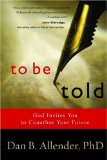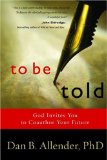
My review of 'RAVEN'S LADDER' by Jeffrey Overstreet
 Sunday, February 28, 2010 at 12:00PM
Sunday, February 28, 2010 at 12:00PM My review of Raven’s Ladder, by Jeffrey Overstreet
(Raven’s Ladder is the third book in The Auralia Thread fantasy series)
-------------------------------------------------------------------------------------------------------
 The last fifteen pages will blow you away…There are twists and turns you’ll never see coming.
The last fifteen pages will blow you away…There are twists and turns you’ll never see coming.
I strongly recommend Raven’s Ladder, and here’s why:
Good fantasy is more than an escape from reality: it’s an escape into reality. The alter-world fantasy creates often bears more resemblance to what’s really going on around us than do our dull and naïve perceptions of daily “reality.” We heedlessly inhabit our own world with little thought beyond paying bills, making sure the kids’ homework is done, or doing our best to make life cooperate. Overstreet says there’s more. His novels whisper to us of another Reality without being preachy or cliché; but rather, with nuance and imagination.
In Raven’s Ladder, as in the first two books of the series, I encountered the Keeper – a creature more worthy of my attention than the anemic religious portrayals of benevolence I grew up with. I also explored the Expanse – a world more textured, delicious, and dangerous than the suburban sameness most of us slog through. Overstreet is so adept at creating detail that neither bogs down the reader nor taxes the imagination. His descriptions of creatures and habitat are at the same time other-worldly, while remaining quite accessible.
Overstreet’s writing is neither too dark nor too naïve. Raven's Ladder presents us with the unnerving brutality of evil while maintaining the hope of beauty and rescue. This is a great series and will reward those with eyes to see and ears to hear the rumors of another world.
Is there a SPECIFIC calling for each of us?
 Friday, February 26, 2010 at 10:16AM
Friday, February 26, 2010 at 10:16AM Is "calling" simply doing whatever is in front of us - just living from our heart wherever we find ourselves; or did God intend something more specific and tailored for each of us? In other words, is calling general or specific?
There's certainly validity in assuming calling is general -- that each of us should love and relate from the new reality of Christ-within, wherever we find ourselves. But I'd suggest that there's more: Paul had a specific calling to Gentiles; Moses was to rescue Israel from Egyptian tyranny; and Jesus' calling was to reveal the Father. There was intent and deliberate direction in each of those cases. Movement with meaning.
There's a reason you have the gifts you do -- they benefit a certain group of people who need exactly what you offer. There are also contexts that will be more suitable to your passions and skills than others. For example, the institutional church was not an appropriate context for my gifts. As a former pastor, I was even told right from the start that I would never find a role in the system where I could bring what I most wanted to. If only I had known then how true that would be.
God intended something distinct and distinguishing when he introduced you to the world. You clearly have latitude and a voice in shaping your unfolding story; but it's better to move through life knowing the specific thing (s) you offer. Christ lives in you, as you: He has bound himself to your personality, your experiences, and your unique brilliance. There's nothing general about you.
“You have so many extraordinary gifts. How can you expect to live an ordinary life?” -- Marmie’s counsel to Jo in Little Women.
Finding your hidden vein of gold
 Tuesday, February 23, 2010 at 12:00PM
Tuesday, February 23, 2010 at 12:00PM Quite often, we're asked to be honest about our weaknesses and shortcomings -- job interviews ask us to disclose this, churches obsess about it, and accountability groups major on our failings. There's nothing wrong with being honest about our weaknesses, but there's something more worthy of our attention: it's the vein of gold within:
"Although men are accused of not knowing their own weakness; yet, perhaps, as few know their own strength. It is in men as in soils, where sometimes there is a vein of gold which the owner knows not of." -- Jonathan Swift
The vein of gold is where God focuses his attention: he is obsessed with what's most alive, radiant, and strong in you. A vibrant seam of gold.
Welcome to Special Forces.
 Thursday, February 18, 2010 at 9:03AM
Thursday, February 18, 2010 at 9:03AM Whether you realize it or not, you've already accepted the invitation to join Special Ops. The invitation came with the whole salvation package. Both men and women are in this elite unit. Each operator offers a unique set of skills for work behind enemy lines. And please note: I'm not using "Special Forces" as a metaphor ...
The Israeli Special Forces have some of the most elite counter-terrorist units in the world, and most difficult to get into. In his book, The Brotherhood of Warriors, Aaron Cohen describes the Israeli Special Forces philosophy for placing individual soldiers in specific operations:
In their tireless search for individual strengths, the Israeli Special Forces are diametrically opposed to the U.S. NavySEALS and British SAS models, with their famous emphasis on instilling mulitdimentional, broad-based skills in all Special Forces operators. In Israel, they don't try to mold everybody into all-purpose supercommandos or Hebrew-speaking versions of James Bond. Almost from the outset at [Counter-Terrorism] School, the instructors start making talent-driven decisions to determine who should fulfill which missions. Certain guys were physically suited to playing a woman or an old man; others delivered the Palestinian dialect so convincingly they could engage in more interactive undercover roles without ever tipping their hand; guys with superior marksmanship or driving skills worked the perimeter without donning a fake beard or opening their mouths to speak Arabic...
Cohen ends with this:
The Special Forces philosophy became: Cultivate individual strengths, look for natural talent. Don't waste time and resources forcing a square peg into a round hole."
What unique set of strengths do you bring to the mission. Can you look back over your story to see how God has been trying to call those strengths out?
Creating a personal crest/ coat of arms
 Monday, February 15, 2010 at 11:44AM
Monday, February 15, 2010 at 11:44AM Last week, I told you I'd show you something I've done to capture my new name in physical form.
Coats of arms and family crests have long been used to express identity -- what a family, clan, or person stands for. As I've been looking back over my story and doing research for my next book on personal identity, I've decided to create a visual metaphor that captures the new name (s) God has given to me.
Remember, he often re-names his loved ones because he wants to restore something in us, and he wants to affirm what we offer the world. Further, God is often attempting to heal a wound when he speaks a new name to us, and affirm what we mean to him.
Here's the symbolism in each of my personal crest's parts below: I designed this to reflect my unique story:
 The sword of Aragorn - In the Lord of the Rings, Aragorn is the wanderer-warrior and heir to the throne. "Aragorn" is a name God bestowed upon me to help me understand my story, reveal a strength I doubted, and to heal some wounds.
The sword of Aragorn - In the Lord of the Rings, Aragorn is the wanderer-warrior and heir to the throne. "Aragorn" is a name God bestowed upon me to help me understand my story, reveal a strength I doubted, and to heal some wounds.
A gold musical whole-note in the middle of the sword's handle guard. "You are my 'Bruce Hornsby' is another piece of the identity puzzle. I'm a writer, but also have been a musician for four decades. Again, God wants to heal a wound here, as well as affirm what he wants me to bring to the world.
Three interlocking rings: the Royal Fellowship, the Trinity, that welcomes me to fight with them, and ultimately rule with them (Yep, the bible actually says that we will rule with him.)
The roman numerals CXLIV -- translated is "144." This number stands for Psalm 144:1 -- "Praise be to the LORD my Rock, who trains my hands for war, my fingers for battle." Whether I'm sitting at the piano or at the computer keyboard, war is being waged -- beauty against desolation, meaning against futility, heart against religiousity.
The larger circle surrounding the sword: the fellowship of those who have gone before.
There are a number of things you can do with a personal crest.
- First, you can ask a graphic designer to create one for you that reflects your deep heart, your renaming.
- Second, the crest can be printed, matted, or as in my case, a ring can be engraved with your crest on it. I found a jeweler who is creating a ring based upon my design and should be receiving mine in the next couple weeks.
..........................................................................
What would your personal crest look like?
Our new name is God's way of healing us
 Tuesday, February 9, 2010 at 9:44AM
Tuesday, February 9, 2010 at 9:44AM You are named by your parents, then you are named by God. Until you discover the secret name he's given you, your story won't make sense to you and your wounds will haunt you.
He gives us our new names so that we may be healed.
When I heard my new name, it felt like I was making it up. The skeptic would say that because I wanted to hear it, I fabricated it in order to make myself feel better. That certainly could happen -- if you leave God out of my story.
 It happened when I was watching Tolkein's Lord of the Rings - the Return of the King for a second time. God whispered something like, "You have a strength like Aragorn's." Aragorn is the warrior-wanderer who would one day assume the throne as the true heir to the kingdom. (Again, all this will sound self-serving unless we understand what God is up to.) By the way, God renamed people all the time in Scripture: 'Abram' to 'Abraham,' 'Saul' to 'Paul,' 'Simon' to 'Peter.' He hasn't stopped renaming people.
It happened when I was watching Tolkein's Lord of the Rings - the Return of the King for a second time. God whispered something like, "You have a strength like Aragorn's." Aragorn is the warrior-wanderer who would one day assume the throne as the true heir to the kingdom. (Again, all this will sound self-serving unless we understand what God is up to.) By the way, God renamed people all the time in Scripture: 'Abram' to 'Abraham,' 'Saul' to 'Paul,' 'Simon' to 'Peter.' He hasn't stopped renaming people.
Why call me, 'Aragorn?" I'd heard God whisper that name to me before. The answer is that all men doubt their strength. But in my case, there was more: I had been a young pastor who challenged the unquestioned authority of those in positions of power. I stepped out of my "proper role" to dispute the status quo. Older and more tenured men in leadership saw it as insubordination and threat. I was tossed out on my ear and kicked out of the pastorate.
Congregation members who knew what was really happening voluntarily wrote letters on my behalf to the district leadership and to the bishop. They fell on deaf ears. The system wasn't designed to hear opinions other than its own.
Here's the parallel: Aragorn faced a similar challenge with established leadership. You may remember the scene in which King Theodin has just been released from the grasp of Worm Tongue's poisonous lying. Under this spell of deception, Theodin had no mind of his own. He was easily deceived. The light in his eyes had gone out, his skin pasty and prematurely aged. Then Gandalf banishes Worm Tongue and his foul counsel from the great hall, and King Theodin becomes himself again.
But Theodin is reluctant to expose his people to war. The younger, inexperienced Aragorn challenges him: "Open war is upon you whether you would risk it or not." Theodin is taken aback by what he thinks is Aragorn's brash arrogance -- but the would-be heir to the throne is simply speaking what needed to be said. And Aragorn's unwelcomed counsel ended up moving the elder King to rescue his people from a dark army approaching their doorstep.
"Jim. You have a strength like Aragorn."
So my wounds began to heal as God spoke the name meant for me: the pain of rejection (being thrown out of 'ministry'), as well as the doubting: "Was I justified in what I did? Was I the one who was wrong?" And through the new name I hear, "No Jim. That was your strength coming through. It cost you, but they don't write your story. I do."
Over the last 6 years, on several occassions, God continues unwrapping more layers of meaning to "Aragorn." And so the healing continues.
Have you begun to hear your secret name?
Are our spiritual values cultural or scriptural?
 Monday, February 1, 2010 at 9:56AM
Monday, February 1, 2010 at 9:56AM Some of what we may think are biblically-informed perspectives of ours may in fact be more culturally-formed than biblical. This happens to everyone: whether you're comfortable in the organized church or not; whether you're a staunch defender of doctrine, or part of the grace movement. It happens to each of us.
- For example, if you were born before WWII and think it's your duty to serve Christ -- because after all, he's forgiven you and you owe him your sacrifice -- then your convictions may have more to do with you being part of the "Builder" generation where duty and sacrifice were values. You may have a difficult time understanding the radical nature of grace.
- On the other end of the spectrum, if you believe Jesus allows multiple ways to God and that his grace allows for a variety of paths, this may have more to do with postmodernity's infiltration into your consciousness -- particularly the decades of the freethinking 60's and 70's. Within the church in recent decades, there has been a resurgence of unconstrained and unfettered thought, in part arising out of post-modern ideas of 'freedom': "Don't you dare tell me how to think, or what conclusions I should draw. Jesus permits 'all things' now."
This shaping happens to everyone. Me? I'm a 'Tweener' born in the gap between the Baby Boomers and the Busters. I don't belong anywhere - yet inherit values from both.
Now, I'm way oversimplifying the complexities here. There are more factors that influence our thoughts -- for example, our experiences and our wounds will color our thoughts about God. On the other hand, some of our convictions are clearly revealed to us by God and are true to his self-revelation.
But...it ought to at least move us to identity our assumptions and their sources. After all, we are interested in what is real and true, aren't we?
ANSWERS TO THE QUIZ - 'How much do you know about grace?'
 Thursday, January 28, 2010 at 2:39PM
Thursday, January 28, 2010 at 2:39PM Do you want to see how your answers compared to other people's?
I've included the percentages below of those who answered 'false' and 'true' for each question.
1. Grace simply means that you are forgiven.
False (84.4%) True (15.6%)
Grace requires restoration. That's the offer of Jesus. Your heart was restored (the old was removed and a new one put in its place) when you said 'yes' to him.
..............................................................
2. God the Father looks at me through 'Jesus glasses,' so that he only sees Jesus and not my sin. False (68.8%) True (34.4%)
God can look directly upon you - without Jesus glasses - because you're actually good and holy now, not simply 'positionally' holy. God is not pretending.
..............................................................
3. My heart (my true nature) is totally clean right now.
False (6.5%) True (93.5%)
4. There's a mix of good and bad in my heart now -- like two dogs fighting for dominance. False (81.3%) True (18.8%)
5. Any good in me is because Jesus now lives in me.
False (56.3%) True (46.9%)
6. Discipleship is about taking on the behavior and habits of Jesus. False (65.6%) True (34.4%)
7. I grow more like Christ only because I am accepted by God.
False (53.1%) True (46.9%)
Answer: False. This is also surprising to many.
Acceptance alone will not restore a person. Only restoration restores. We are indeed fully accepted by God; yet we needed something more -- a new life and power to love well. Otherwise, what you have is a fully-accepted dead person: much like pardonning and accepting a corpse. The corpse needs life.
-----------------------------------------------------------------------
Were you surprised, even troubled, by any of the answers? Do you agree with them?
How much do you know about grace? ... Take the quiz.
 Thursday, January 28, 2010 at 10:39AM
Thursday, January 28, 2010 at 10:39AM  I've put together a quick quiz to find out what people know (or what they are convinced they know about 'grace.') I've used SurveyMonkey.com to create this short quiz.
I've put together a quick quiz to find out what people know (or what they are convinced they know about 'grace.') I've used SurveyMonkey.com to create this short quiz.
The answers to the quiz may be quite surprising to some - even for those who have been walking in grace for years.
The quiz is short - only seven true/false questions.
I'll be revealing the answers this weekend here on the blog.
Trusting your heart is the biblical thing to do.
 Tuesday, January 26, 2010 at 2:08PM
Tuesday, January 26, 2010 at 2:08PM It's o.k. to trust your heart now. In fact, Jesus wants you to.
Your heart can be trusted now because it is no longer 'deceitfully wicked.' If you follow Christ, it would be wrong to mistrust your heart: It would be at cross-purposes with what God is doing in your life to constantly hold your desires under suspicion.
I recently asked a group of men to raise their hands if they thought that trusting their hearts was the right thing to do. About a third of the hands went up. The majority thought that holding their heart under suspicion was the biblical thing to do. As we unpacked the truth of their new hearts, given to them when they said 'yes' to Jesus, we exposed the debilitating assumptions they were taught about their hearts.
I explained that within the new heart Jesus gave them came new and noble desires -- and that dismissing those desires as selfish or inherently wicked would prevent them from doing certain things like:
- discovering their unique calling
- loving God and loving each other
But not all desires are created equal
There are, of course, competing desires that can be whispered to us, but those desires are not ours. They are either whispered by the Enemy, or our culture, or our 'flesh' (which is no longer us, not our real self); but those desires are not our desires. False desires are like thorns lodged in the skin -- they are embedded in our bodies, but not of our bodies. The thorns cry out for our attention, but our health lies in the vitality already present in our bodies. Our concern must focus on what's most alive and already present within us. That's where God focuses his energy.
Ask God to reveal the desires of your heart.
Stay with the process. It's what he's up to in your life. Trusting your heart is biblical.
Training scars
 Friday, January 22, 2010 at 12:42PM
Friday, January 22, 2010 at 12:42PM Law enforcement and the military have a term for an inappropriate or mistaken response that was mislearned during training, a behavioral script that gets laid down during the officer's training that would clearly not be helpful in a real situation, or perhaps even yield a deadly result. The term is "training scar."
David Grossman, in his book, On Combat, describes an officer-in-training who learned how to grab a gun out of a would-be criminal's hand. During practice, the officer would grab a gun from a colleague, then give it back to him in order to rehearse it again. During a real confrontation with an assailant, the officer surprisingly grabbed the gun from the man's hand, then gave it right back to him. Fortunately, the officer's partner dispatched his own weapon and shot the attacker. The officer who had learned an inappropriate response during training -- giving the gun back -- nearly cost someone's life. That's a training scar.
The Church today is functioning with numerous training scars, or behavioral scripts that are not serving us well. These scripted beliefs are wreaking havoc on The Body. These rehearsed patterns of thought are perhaps even neurologically wired into our brains in ways that lock the spirit and body (Spirit and Body) into dis-ease. The training scar I'm particularly concerned about is our continuing belief that the human heart remains dark, inwardly bent and sinful even after Christ has given the Christian a new heart, goodness and identity at their conversion.
We have remained in the Old Covenant approach to relating, refusing to pass over into the New. Listen to most sermons on any given weekend, and you'll discover the following ingrained script: "Your heart is still selfish and prone to wander. Kill you heart and call that 'holiness.' It's our job to help you behave more like a Christian so that you can do more, be more committed, and stop being so spiritually inept. You don't really want to follow God, so we'll pressure you into becoming like him."
The script of "New creation in Christ, but bad heart, still" is the pervasive training scar of the day. It is not the Gospel. And the result to the unwitting Christian is this wound: "You're not pleasing to me. Try harder." ---------------------------------
For more on behavior scripts, see Laurence Gonzales' books, Deep Survival and Everyday Survival. "Training scar" gun story, from Everyday Survival.
Do I like the guy I'm following?
 Tuesday, January 19, 2010 at 10:10AM
Tuesday, January 19, 2010 at 10:10AM I was asking God today what he wanted for me this year - the focus or emphasis of the next 12 months. What came to mind unnerves me a bit: The desire that surfaced was,
"I want to know you more so that I can like you."
I wish I was farther ahead in my journey of more than four decades, that I didn't need to ask God to help me like him more. So often we Christians have been pressured to love him with all our hearts, minds, bodies and souls; yet fail to ask if we even like the guy we're following. Would I be drawn to him; find myself eager to get some face-time with him?
As I processed this with Jesus, I didn't feel any scorn or guilt from him. Rather, I felt understanding: "I know you want to like me more; but your mental image of me has been so colored by poor teaching and false assumptions. I'm not mad at you for this."
So I'm praying, "I want to like you Jesus. Let's strip away all imagery and conviction that has misrepresented your true heart."
Restoration is better than 'acceptance' alone...
 Friday, January 15, 2010 at 9:43AM
Friday, January 15, 2010 at 9:43AM  A Mountain Search and Rescue unit gets a call that a climber has fallen on Mt. Hood, near Portland Oregon. The climber's pick axe failed to grab when he attempted to lodge it into a unstable pocket of ice. There was nothing to stop his fall. Other climbers found the body, mangled and barely alive, one-thousand feet down from where he started to slide.
A Mountain Search and Rescue unit gets a call that a climber has fallen on Mt. Hood, near Portland Oregon. The climber's pick axe failed to grab when he attempted to lodge it into a unstable pocket of ice. There was nothing to stop his fall. Other climbers found the body, mangled and barely alive, one-thousand feet down from where he started to slide.
When the mountain rescue unit got there, multiple bones were shattered, including the spine, and the climber was bleeding from his ears and nose. Rescue workers knelt near the bleeding body and spoke reassuringly to it: "We accept you."
And then they did nothing else. To comfort the climber, they again offered, "We accept you. You are loved and safe now." But nothing else was done - no attempt to discern the man's vitals or assess his awareness of surroundings. No attempt to stabilize and transport the body.
Only, "You are loved and accepted. It's o.k. now."
..................................................................................................
O.k., so I made up the story to demonstrate something. It is not enough for Christians to see themselves as merely loved and accepted by God's grace. That's a beautiful thing; but it won't restore a person or give them back the capacity to live well -- There was great damage that needed healing.
God is smarter than that. He restores us by equipping us with a new and noble heart so that we can relate well, live well, and enjoy this new grace we've been given. Anything less would be as cruel as the clearly shallow and insufficient 'hope' the mountain rescue unit offered the dying climber.
What have you been taught about 'grace' and 'acceptance.' Was it enough?
 acceptance,
acceptance,  grace,
grace,  heart,
heart,  restoration in
restoration in  grace,
grace,  new heart,
new heart,  noble heart,
noble heart,  transformation
transformation  Permalink
Permalink Being 'accepted' by God isn't enough.
 Monday, January 11, 2010 at 9:33AM
Monday, January 11, 2010 at 9:33AM One of the members of The Good and Noble Heart community I moderate asked a great question. The core of her question goes to real the offer of Jesus. Here's her question:
What exactly did Jesus accomplish for us? I really believe that He brought us to a place of being able to be with the Father, unrestricted and free. That's how I life my everyday life with Him. But I really don't know how to see myself...am I really good now and therefore can go to the Father, or still the same old me, but completely accepted through Christ's dying on the cross, and that being accepted as I am gives me the hope and strength to be able then to change.
Her confusion is understandable and common to many Christians: Am I merely accepted by Jesus (which is a beautiful thing in itself) but am still essentially the same person I was before I met him; or did he do something to me -- making me truly good and pure of heart?
The trouble with seeing ourselves as only forgiven and accepted is that is doesn't solve the root problem -- a diseased and fatally-incapacitated heart. If Jesus were to 'accept' us without giving us the capacity to love and relate well to him, we would not be able to live or love as he did -- unable to fulfill the command to "love God with all your heart...." It would be a cruel and unfair expectation on God's part.
Further, we would be debilitatated and diminished in our capacity to love others: "Love one another as I have loved you." You can't love like Jesus unless you have his heart. And that's exactly why his offer includes acceptance ... and a gloriously new heart.
The salvation Jesus offers is a rescue of the heart. It has to be. There is no loving and living well without a reborn, alive and supernaturally-vibrant heart.
...................................................................................................
Is this understanding of the Gospel what you were taught?
 Jesus mission,
Jesus mission,  grace,
grace,  new heart in
new heart in  grace,
grace,  identity,
identity,  love,
love,  new heart,
new heart,  transformation
transformation  Permalink
Permalink Don't let pragmatism kill your dream.
 Tuesday, January 5, 2010 at 12:00PM
Tuesday, January 5, 2010 at 12:00PM Pragmatism can kill your desires. Statements like the following will sabotage budding dreams:
- "How will we pull this off?" (vs Why should we do this?)
- "I'd love to pursue this, but I don't have the time, money, resources."
- "I've always dreamed of becoming a [________], but how will I provide for my family?"
- "I really want to move forward in my calling, but I guess I'll wait until the economy rebounds a bit."
Let me also be clear that there must be discernment involved. Launching into your dream or calling without having heard some directive from God can be foolish and bring about unnecessary pain. Listening for his counsel and wisdom is critical. That having been said, don't allow pragmatism to prevent you from taking the necessary, God-inspired risks that will bring you further into your place in the Story.
Pragmatism's favorite word is "how?" Someone has to answer that question, but we can leave that to our Supply Captain who has any and every resource at his disposal.
God recently asked me and my wife to move our family 1,000 miles with no job. I knew that's how he wanted us to proceed because it's what I had been hearing for two years. Believe me, it was tempting to hedge our bets and say, "Sure we'll move, God; if you give us a job first." Or, "Let's wait until we've got some good job leads."
In fact, our trust did waver during the journey. Other's we hoped would support us thought we were nuts. But in the end, we moved without a job. And God showed up. Brilliantly. He provided a job for my wife that couldn't have come any other way than by his intervention. That's just one of the ways in which he took care of things.
Pragmatism could have killed our dream, for we did not have a clue as to "how" God was going to provide. But our Supply Captain always has something up his sleave...
Locate the wound.
 Thursday, December 31, 2009 at 12:36PM
Thursday, December 31, 2009 at 12:36PM How do you know what your calling is?
One of the ways is to locate the wound. There are many cuts, punctures and breaks we've suffered, but if you look, there will be a central defining wound -- perhaps going back to childhood. That wound will carry a heartbreaking message with it, a sentence of despair.
 In my case, the journey from childhood to adulthood was a cycle of being missed and dismissed. I had something to offer, yet no one seemed to affirm it or draw it out. There was no one to call out my gifts and the heart I wanted to offer. The Church didn't help. With crushing force, I was thrown out of pastoral ministry because I challenged assumptions leaders were making. Though truthfully, I never fit the mold. I had too much passion about what I wanted to offer, and the institution said there was no place for me ... over and over again. The institution thought my role was dutiful compliance, as they ordered me to take on whatever scripts and roles they thought were necessary to keep the religious machinery going.
In my case, the journey from childhood to adulthood was a cycle of being missed and dismissed. I had something to offer, yet no one seemed to affirm it or draw it out. There was no one to call out my gifts and the heart I wanted to offer. The Church didn't help. With crushing force, I was thrown out of pastoral ministry because I challenged assumptions leaders were making. Though truthfully, I never fit the mold. I had too much passion about what I wanted to offer, and the institution said there was no place for me ... over and over again. The institution thought my role was dutiful compliance, as they ordered me to take on whatever scripts and roles they thought were necessary to keep the religious machinery going.
The wounding over the last four decades was clear: "No one wants what you have to offer."
A wound of rejection. A cycle of dismissal.
The very thing I wanted to offer was being shut down.
Locate the wound. Your wound will be the ashes out of which your glory and brilliance rise. Jesus is in the process of redeeming and healing your wound, turning shame into glory. The very thing at risk of being shut down and sabotaged is the very thing you are called to.
So you might guess that over four decades, I searched hard and long for validation and clarity. I was desperate to know what I was called to. "How do I find out? What are the particulars of my calling?" And God brought people into my life to call out and affirm the gifts and passions they knew were there. Slowly I began to heal.
Remember that your wound will be a clue to your glory. You might guess that, because of my own wound, I enjoy helping people recover their own identity, longings, and offerings. I want them to get their noble and unique heart back.
---------------------------------------------------------------
Have you discovered your wound and how it points to your glorious new identity?
QUOTES for shaping your own story
 Tuesday, December 22, 2009 at 1:19PM
Tuesday, December 22, 2009 at 1:19PM
In my last post, I told you about Dan Allender's book, To Be Told -- know your story, shape your future. Here are some great quotes from the book that I think you may find helpful:
The unique glory you offer:
What about God am I most uniquely suited to reveal to others?
..................................................................................................
Living by the wrong scripts:
They have lived less in the light of the story of God and more by the inevitabilities of life's demands. In other words, they allow circumstances to write their story.
..................................................................................................
We have permission to shape our story:
We are called to co-author the ending [rest of our story] according to the themes that the primary Author has penned for us. We are called to take up our pen and follow him. It is the enormous humility of the sovereign Author to give us a voice in the dialogue. And not only does he want us to write, but he cheers us on.
..................................................................................................
Discovering your calling:
But how in the world do we know our calling? I've seen that our calling always seems associated with the name that God gives each one of us.
..................................................................................................
Vicarious living:
Too many people are missing their story because they're watching the stories of others.
..................................................................................................
Your unique role:
God has ... given us a role that will reveal something about him that no one else's story can reveal in quite the same way.
Know your story - shape your future
 Sunday, December 20, 2009 at 10:31AM
Sunday, December 20, 2009 at 10:31AM  I'm reading a great book by Dan Allender called, To Be Told - God invites you to co-author your future. Discover how your tradegies to this point have shaped your story and "unnamed you," sabotaging your identity.
I'm reading a great book by Dan Allender called, To Be Told - God invites you to co-author your future. Discover how your tradegies to this point have shaped your story and "unnamed you," sabotaging your identity.
And then learn how God wants to work with you to shape the rest of your story; so that you can live in your true and glorious name. What does God want to say to the world through you, your unique story?
What do you think people are really looking for during the Christmas season?
 Tuesday, December 15, 2009 at 10:17AM
Tuesday, December 15, 2009 at 10:17AM
Let me offer a thought. I think people are looking for innocence. Not the kind of innocence that implies freedom from guilt or offense; but the return to innocence, when the world felt safe for them. Much like the hobbits in The Lord of the Rings who want to return to the Shire where all well with their soul and nothing threatened or wounded.
I'm not saying this is a bad thing at all. Just something I've been mulling over.
What do you think people are really looking for during this season?

















